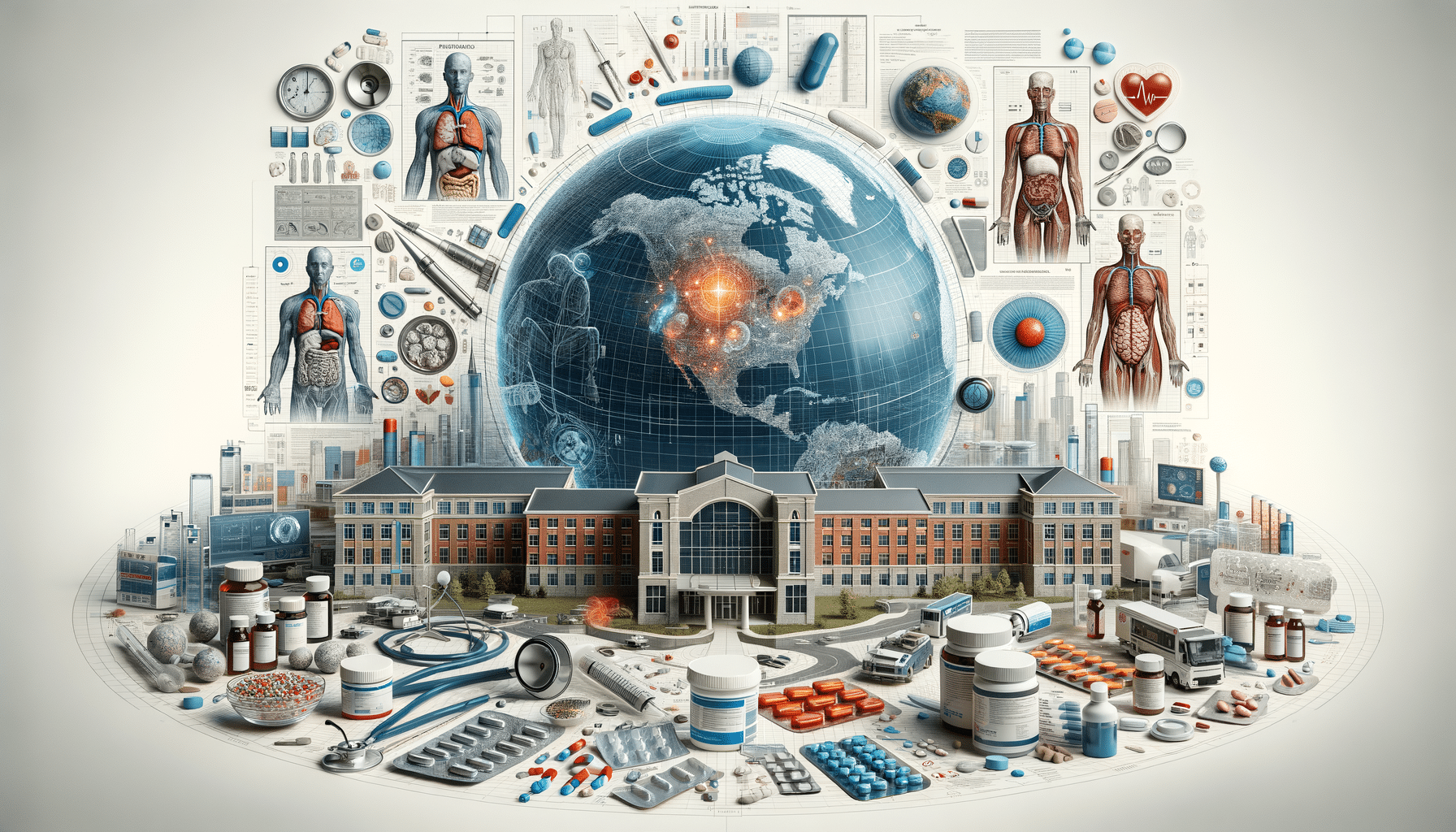Understanding the Complex World of Healthcare: A Comprehensive Guide
Healthcare plays a crucial role in maintaining and improving the quality of life across the globe.

The Evolution of Healthcare Systems
Healthcare systems have undergone significant transformations over the centuries. From rudimentary practices in ancient times to the sophisticated, technology-driven systems of today, the evolution of healthcare is a testament to human ingenuity and the relentless pursuit of better health outcomes.
In ancient civilizations, healthcare was often intertwined with religion and magic. Healing was performed by shamans or priests, and remedies were based on herbs and spiritual rituals. As societies advanced, so did their understanding of medicine. The Greeks and Romans made substantial contributions with the introduction of medical schools and the Hippocratic Oath, which laid the foundation for ethical medical practice.
Fast forward to the 20th century, the discovery of antibiotics and vaccines marked a turning point, drastically reducing mortality rates and eradicating diseases like smallpox. The establishment of national healthcare systems in many countries aimed to provide universal access to medical services, reflecting a growing recognition of healthcare as a fundamental human right.
Today, healthcare systems vary widely across the globe, influenced by cultural, economic, and political factors. However, the core objective remains the same: to improve patient outcomes and ensure the well-being of populations.
Challenges Facing Modern Healthcare
Despite advancements, modern healthcare systems face numerous challenges that impact their ability to deliver effective care. One of the most pressing issues is the rising cost of healthcare, which strains both individuals and national economies. Factors contributing to these costs include the aging population, the prevalence of chronic diseases, and the high price of medical technology and pharmaceuticals.
Another significant challenge is the disparity in healthcare access and quality. While some countries boast state-of-the-art facilities and comprehensive coverage, others struggle with inadequate infrastructure and limited resources. This inequality often results in poorer health outcomes for marginalized communities.
Furthermore, healthcare systems are grappling with the integration of digital technologies. While these innovations hold the promise of improved efficiency and patient care, they also raise concerns about data privacy and the digital divide, where not all patients have equal access to technology.
Addressing these challenges requires innovative solutions and collaborative efforts from governments, healthcare providers, and the private sector to ensure equitable, sustainable, and high-quality care for all.
The Role of Technology in Healthcare
Technology has become an integral part of healthcare, revolutionizing the way medical services are delivered and managed. From electronic health records (EHRs) to telemedicine, technology enhances the efficiency and effectiveness of healthcare systems.
Electronic health records streamline patient information management, allowing for seamless communication among healthcare providers. This reduces errors and improves patient outcomes by ensuring that all relevant data is accessible during treatment.
Telemedicine, which gained prominence during the COVID-19 pandemic, offers remote consultations and monitoring, making healthcare accessible to those in remote or underserved areas. It also reduces the burden on healthcare facilities by minimizing in-person visits for routine check-ups.
Moreover, advancements in artificial intelligence (AI) and machine learning are paving the way for personalized medicine. AI can analyze vast amounts of data to identify patterns and predict health risks, enabling preventative measures and tailored treatment plans.
However, the integration of technology in healthcare is not without challenges. Ensuring data security, maintaining patient confidentiality, and addressing ethical concerns are crucial as technology continues to shape the future of healthcare.
Preventative Care: A Shift Towards Wellness
Preventative care is gaining recognition as a vital component of healthcare, focusing on maintaining wellness rather than merely treating illness. This proactive approach aims to reduce the incidence of diseases and improve overall health outcomes.
Preventative care encompasses a range of services, including vaccinations, screenings, and lifestyle counseling. Regular health check-ups and screenings can detect potential health issues early, allowing for timely intervention and reducing the risk of complications.
Vaccinations are a cornerstone of preventative care, protecting individuals and communities from infectious diseases. Public health campaigns and education play a crucial role in promoting vaccination uptake and dispelling myths surrounding their safety.
Furthermore, lifestyle modifications, such as a balanced diet, regular exercise, and smoking cessation, are essential components of preventative care. Healthcare providers are increasingly focusing on educating patients about healthy habits and providing resources to support behavior change.
Investing in preventative care not only improves individual health but also reduces healthcare costs by minimizing the need for expensive treatments and hospitalizations. As healthcare systems continue to evolve, preventative care will remain a key strategy in promoting long-term health and well-being.
The Future of Healthcare: Trends and Innovations
The future of healthcare is poised for exciting developments, driven by technological advancements and a growing emphasis on patient-centered care. Several trends and innovations are shaping the landscape of healthcare, promising to enhance the quality and accessibility of medical services.
One notable trend is the shift towards personalized medicine, where treatments are tailored to individual genetic profiles and health histories. This approach allows for more precise and effective interventions, reducing the trial-and-error nature of traditional treatments.
Another emerging trend is the use of wearable technology for health monitoring. Devices such as smartwatches and fitness trackers provide real-time data on vital signs and physical activity, empowering individuals to take an active role in managing their health.
Furthermore, the integration of artificial intelligence in diagnostics and treatment planning is revolutionizing healthcare. AI algorithms can analyze medical images and data with remarkable accuracy, assisting healthcare professionals in making informed decisions.
In addition to technological innovations, there is a growing focus on holistic and integrative healthcare approaches. This involves considering the physical, mental, and social aspects of health, and incorporating complementary therapies alongside conventional treatments.
As these trends continue to evolve, the future of healthcare holds the promise of more efficient, effective, and personalized care, ultimately improving the quality of life for individuals worldwide.